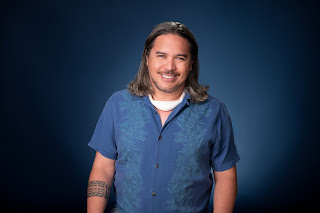My employer puts out a monthly newsletter for staff and in this month's edition I was interviewed about some of my recent work. I'm pasting it here for posterity.
Angelo, could you give us an overview of the Under the Pala Pala project? What is the meaning of the name behind this project?
The name is “Under the Pala Pala.” I'm from the island of Saipan in the Northern Mariana Islands, which is in a region of the Pacific called Micronesia. When I was a kid I would go to my family’s farm, which had a pala pala. A pala pala is an outdoor structure where you would keep your lawn mower or bush cutter. When you are working on the ranch and you wanted to take a break, you might go sit under the pala pala, drink a soda or some water, have something to eat, and talk about the day's events. It’s similar to the “water cooler” for offices in DC.
This project came together because the Center for American Progress supports a learning network of Indigenous advocates for national marine sanctuaries. We serve as the secretariat and we have phone calls every two months. One of the things that the members decided they needed help with was telling their stories. So, working with Margaret Cooney and Zainab Mirza we came up with the idea for a short video series. Initially, for the first couple episodes the topics came from the group themselves. The first episode was about women in conservation and the second episode was about healing in conservation. Then the following episodes were guided by me because I wanted to really dive into the issues of Indigenous-led conservation. Through these conversations, we started to peel back the onion of what that means. We also wrote an accompanying article that describes some of the ideas and topics that the members talked about throughout the video series. We see this as a framework for understanding indigenous-led conservation that comes down to the six themes of identity, knowledge, values, advocacy, responsibility, and allyship. The last topic focuses on the fact that while there are many Indigenous peoples working in conservation, there are also a lot of non-Indigenous people who support the work.

Comments
Post a Comment